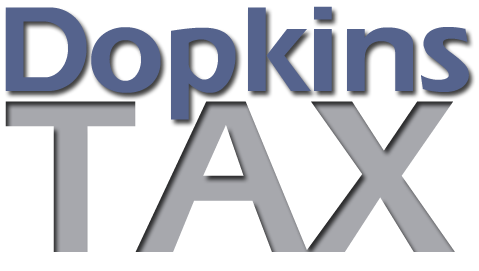IRS Announces Relief for Late Rollovers of Retirement Plan Funds
September 29, 2016 | Authored by Dopkins Tax Advisory Group
 September 29, 2016 – The IRS has released new guidance to help taxpayers avoid taxes and penalties for late rollovers of distributions from employer-sponsored retirement plans and individual retirement accounts (IRAs). Ordinarily, such rollovers must be completed within 60 days to be considered valid. The new guidance establishes a process for taxpayers who miss the 60-day rollover window for any one of 11 different reasons to correct the error.
September 29, 2016 – The IRS has released new guidance to help taxpayers avoid taxes and penalties for late rollovers of distributions from employer-sponsored retirement plans and individual retirement accounts (IRAs). Ordinarily, such rollovers must be completed within 60 days to be considered valid. The new guidance establishes a process for taxpayers who miss the 60-day rollover window for any one of 11 different reasons to correct the error.
Background
Generally, a taxpayer who wants to roll funds tax free from a workplace retirement plan or IRA into another plan or IRA has two options:
- Arrange for a direct trustee-to-trustee transfer of the funds (without taking receipt of the money) or
- Take the distribution and deposit it with the new plan or IRA trustee within 60 days.
In the second case, failure to meet the 60-day deadline generally renders the rollover invalid and the distribution taxable. Also, for those under age 59½, an additional 10% penalty will generally apply unless the taxpayer can meet one of a number of narrow exceptions.
Prior to the new guidance, taxpayers had only two avenues of relief for late rollovers. One was an “automatic waiver,” which applies only if the financial institution is at fault. Alternatively, the taxpayer could apply for a private letter ruling from the IRS, but the application fee for a ruling is $10,000.
New self-certification procedure
The new guidance offers a third avenue. It requires no application fee, but the taxpayer must complete the IRS’s model certification letter (or one substantially similar to it) and forward it to the receiving plan or IRA trustee.
In the letter, the taxpayer must certify that he or she missed the 60-day deadline for one of 11 specified reasons. These include — in addition to error by a financial institution — severe damage to the taxpayer’s principal residence, serious illness of the taxpayer or a family member, postal error, and a misplaced distribution check. In addition, the taxpayer must complete the rollover “as soon as practicable” — usually within 30 days — after the reason for the delay has ceased to apply.
Note that the IRS reserves the right to later challenge the rollover if it determines that the certification was not truthful or that the contribution was not made “as soon as practicable.”
Contact your Dopkins Tax Advisor if we can help answer your rollover questions.
About the Author
Dopkins Tax Advisory Group
Our tax professionals include specialists who are proactive, strategic thinkers who work to maximize your cash flow. In addition to cash flow considerations, we also believe that tax planning is most effective when it is integrated with, and fully supports, your business plan and personal goals. Our approach to tax planning will help you better understand the tax implications of any proposed course of action, and together we can make the right decisions for your business. Contact us via email link below for more information. for more information contact your Dopkins Client Service Coordinator or Gregory Urban at gurban@dopkins.com

